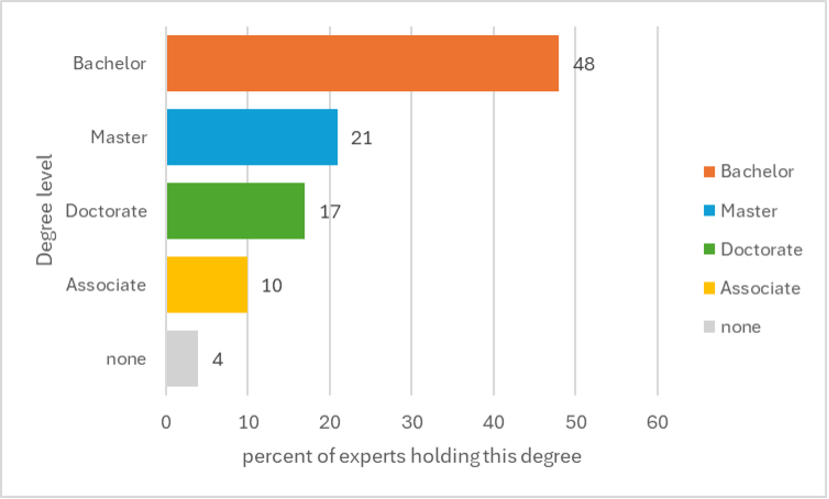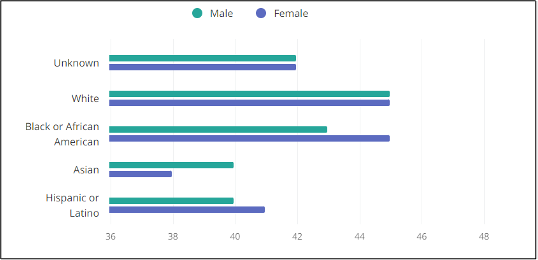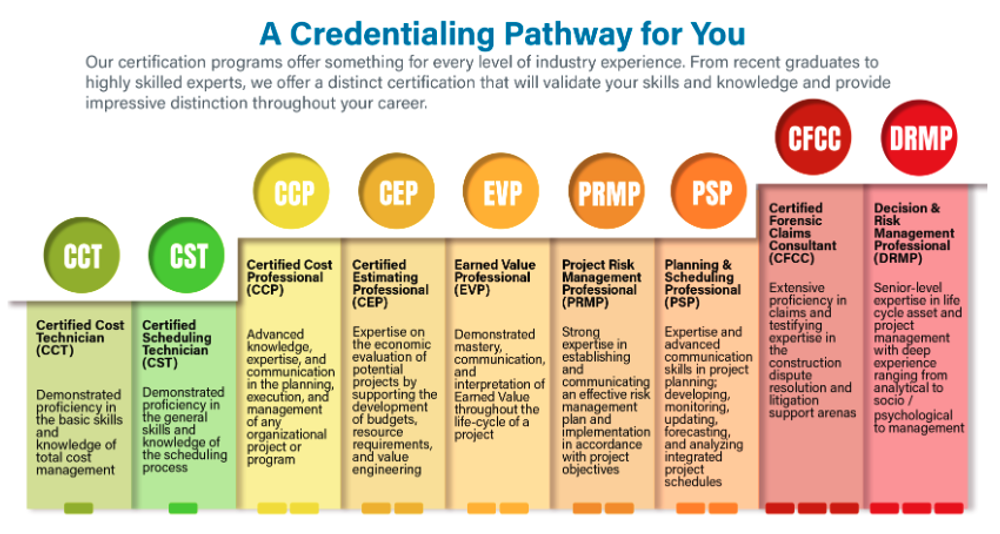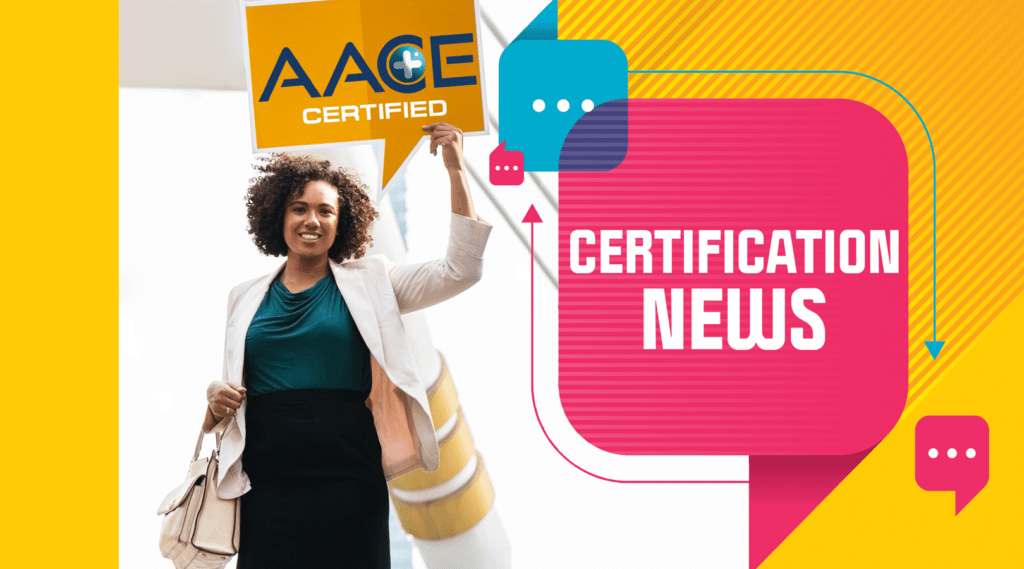So, You Want to Be an Expert Witness?
Accelerate Your Path to the Witness Stand by Obtaining Your CFCC Certification
By Nickolas Florez, CFCC | Certification Board Member
Abstract
One of the major hurdles in being selected to testify as an expert witness is obtaining your first assignment, as clients and their legal counsel generally want to have a proven and experienced individual in their corner, leaving little room for first-time testifying experts. This paper discusses one of AACE International Certification Institute’s (“Institute”) expert-level certifications, the Certified Forensic Claims Consultant (CFCC), and how this certification was designed to help overcome the lack of testifying experience for otherwise exceptionally well-credentialed claims experts. This paper also discusses how the AACE International (“AACE”) organization assists in the professional development of aspiring experts and how other professionals could benefit from a CFCC certification.
Introduction
One of my favorite lines from my favorite movie, A Few Good Men, is the contested testimony of the prosecution’s expert witness, Dr. Stone, which goes as follows.
Prosecution:
Dr. Stone, you’ve held a license to practice medicine for 17 years, you are board certified in internal medicine, you are chief of internal medicine at a hospital which has served 5,426 people. In your professional medical opinion, was Willie Santiago poisoned?
Defense:
Your Honor, we renew our objection to CDR Stone’s testimony and ask that it be stricken from the record. We further ask the court to instruct the court members to lend no weight to this witness’ testimony.
Judge:
The objection is overruled counsel.
Defense:
Your Honor, the defense strenuously objects and requests an 802 conference so that his Honor might have an opportunity to hear discussion before ruling on this objection.
Judge:
The objection of the defense has been heard and overruled.
Defense:
Move to reconsider.
Judge:
Your objection is noted, the witness is an expert and the court will hear his opinion!
Of course this was just a movie, but it does make a colorful illustration of how impactful the opinion of an expert can be perceived to sway the potential outcome of a trial. In the construction litigation arena, delays and impacts are most often analyzed and explained by an expert witness, particularly those related to lost productivity and use of the measured mile approach for damage assessment. According to the United States Court of Claims:
It is a rare case where loss of productivity can be proven by books and records; almost always it has to be proven by the opinions of expert witnesses. [1]
Also:
Indeed, in every case the court has reviewed involving the measured mile method, an expert was required to apply the method. [2]
It is without a doubt that establishing yourself as an expert, such that a trier of fact recognizes you as an expert and relies, at least in part, on your opinion to make a reasoned judicial decision, is indeed an honorable endeavor. The question remains, however: How does one attain the necessary credentials to qualify as a testifying expert? Becoming CFCC certified could be a key component towards achieving that goal.
Necessary Credentials
Of course, extensive experience and specialized subject matter knowledge is the number one requirement. But even with this, your chances of ever being given an opportunity to act as a testifying expert are still remote. You need to build a strong base of credentials, such as:
- An advanced degree in your area of expertise.
- Working in your specialized field in a senior position.
- Drafting high-level technical evaluations and/or analysis.
- Publishing work in trade journals and publications.
- Speaking engagements at professional conferences.
- Being quoted by other publications or by the media.
- Recipient of prestigious awards, grants, or fellowships.
- Establishing a history of providing expert testimony.
Also, in a recent survey, 79% of respondents believe experts should be recognized by a professional body and hold current membership/registration with them [3]. AACE is a preeminent professional organization and could greatly assist in achieving many of these credentials. AACE provides a forum for peer-reviewed technical papers and, if accepted, provides for papers to be presented at their annual conference and subsequently published within the conference proceedings. AACE also has a mentoring program that can assist and guide young professionals as they progress in their careers and gain the experience, knowledge and credentials necessary to become an expert. Once that expertise and experience is obtained and a broad base of related credentials established, the CFCC certification can help position you to secure a role as a testifying expert.

Figure 1: College level of degree held by experts in US [4]
Rule 702 and the Catch 22
Federal Rules of Evidence 702 is the rule of civil procedures that outline the requirements for testimony by an expert witness [5]. Rule 702 requires an expert witness to be someone who possesses specialized knowledge, skill, experience, training, and education and whose opinion will aid the trier of fact in understanding the intricacies of the case. However, herein lies the challenge to aspiring experts. While aspiring experts may have the knowledge, skill, training, education, and are otherwise well credentialed, it is still exceptionally difficult to gain experience as a testifying expert if you have never testified as an expert, the classic “Catch 22”. Clients generally want the most experienced and seasoned expert in their corner and may be reluctant to put someone with no trial experience on the stand. Fortunately, the CFCC certification was created to help overcome the testifying experience hurdle. The CFCC is a highly recognized and respected credential, issued by AACE, that affirms to the trier of fact that the individual has achieved and maintains expert level qualifications. The CFCC certification is designed to provide confidence to the trier of fact, client counsel, and even opposing counsel, that, by having obtained such certification, the individual is fully capable and exceptionally well qualified to testify as an expert witness. This, coupled with a strong base of other credentials, should help to get aspiring testifying experts over the lack of testifying experience hurdle. After all, there are only 74 individuals worldwide that currently hold a CFCC certification. A very select group indeed.
What is a Certified Forensic Claims Consultant (CFCC)?
The CFCC certification is one of the two expert level certifications offered by the Institute. As described from the AACE website [6]:
A CFCC is an experienced claims professional working in the construction dispute resolution and litigation support arenas who has demonstrated the knowledge, experience, education, and skills necessary to qualify as a testifying expert. […] the CFCC represents practitioners and specialists who meet a demanding set of claims preparation and dispute resolution criteria comprising of experience, education, and compliance with industry-accepted ethical requirements.

Figure 2[i]: Expert witness age by race and gender in the United states [4]
How do I obtain CFCC certification?
The CFCC certification is a two-step process. The first of which is to submit an online application to verify that you meet the minimum requirements necessary to sit for the exam, which is the second step.
Step 1: Application Requirements
- Each applicant must demonstrate a minimum of 12 years of relevant experience in the preparation and submission of claims and dispute resolution. The experience must be centered on and directly deal with the prosecution, defense, and resolution of claims and disputes.
- A four-year college degree.
- Four letters of recommendation from industry professionals that can verify your years of experience.
- An example of your work at an expert level which consists of one of the following: An expert report submitted as evidence, a formal claim submittal, a formal claim analysis, or a professional paper accepted for publication any of which must have been written within 24 months prior to applying to sit for the exam.
- A current certification or license in a related field. If you do not have a post-educational certificate or license, four years of additional claims experience may be used.
Step 2: Exam
Once your application is approved, you will be permitted to sit for the exam which will be scheduled at your convenience and at a third-party proctored location near you. The exam consists of two parts, the first of which is a series of 100 multiple-choice questions. The questions are related to legal knowledge/dispute resolution/rules of evidence (35%), cost damages/estimating/loss of productivity (20%), planning/scheduling/delay analysis (15%), project management and documentation (15%) and ethics (15%).
The second part comprises responding, in written essay format, to four real-world dispute scenarios.
The exam is graded by multiple CFCC-credentialed professionals that objectively evaluate the candidate’s essay answers. The essays provide complex scenarios, and ask for answers and recommendations that should be relatively routine for a well-seasoned claims and litigation professional. The exam is not “easy”, which makes the certification that much more meaningful, as its rigor and peer-reviewed nature further enhance the credibility of the CFCC credential.
Who would benefit from CFCC certification?
Clearly, anyone aspiring to become a testifying expert would benefit from obtaining a CFCC certification. However, there are many others that would benefit professionally. For example, for those working for a construction claims management firm or a law firm, obtaining the CFCC certification would distinguish oneself from peers and, at the same time, help to strengthen the reputation of the firm by having employee(s) with such esteemed credentials. For law firms that specialize in construction claims and dispute resolution, having individual lawyers and paralegals with the CFCC certification would demonstrate expert level qualifications in a specialty area of the law. For a construction company, expert level claim analysis, reports and recommendations provided by a CFCC certified individual instantly brings substantial credibility to the work. For government Contracting Officers, contract representatives and for A/E firms, who work primarily in the defense against claims brought against the government, a CFCC certification could add a great deal of credibility to the analysis prepared and conclusions reached in Contracting Officer final decisions.

Figure 3: Credentialing pathway provided by THE INSTITUTE [7]
Another benefit to the CFCC is the higher salary ratio for credentialed employees. [8] CFCC’s hold the highest average and normalized salaries of all AACE certifications in the Claims and Dispute Resolution field.
Conclusion
To be considered for a role as a testifying expert witness, it requires a significant amount of specialized knowledge, skills, and education among a number of other qualifying credentials. Among the most difficult to obtain, is prior testifying experience. The CFCC certification was designed to help overcome the lack of testifying experience hurdle. A CFCC is a widely recognized and highly regarded professional in the field of construction claims and is fully qualified and capable of testifying as an expert witness. There are also many other professionals that would benefit from a CFCC certification, both for the individual and for the organizations that employ them.
References
[1] | S. Comfort Builders, Inc, v. United States 67 Fed.CL. 124, 144 (2005), 2005. |
[2] | FLATIRON–LANE v. CASE ATLANTIC CO. 515 Cite as 121 F.Supp.3d 515 (M.D.N.C. 2015), 2015. |
[3] | P. Rogerson, “In Focus: Expert Witness Survey 2023,” 3 November 2023. [Online]. Available: https://www.lawgazette.co.uk/news-focus/in-focus-expert-witness-survey-2023/5117782.article. [Accessed May 2024]. |
[4] | Zippia, “Expert Witness Demographics and statistics in the US,” 2021. [Online]. Available: https://www.zippia.com/expert-witness-jobs/demographics/#age-statistics. [Accessed May 2024]. |
[5] | J. Anjelica Cappellino, “The Daibert Trilogy: Navigating the Standard for Expert Witness Challenges,” 16 November 2016. [Online]. Available: https://www.expertinstitute.com/resources/insights/daubert-trilogy-. [Accessed May 2024]. |
[6] | “AACE International,” [Online]. Available: https://web.aacei.org/certification/certification-information/certifications-offered/expertise-certifications. [Accessed 27 April 2024]. |
[7] | AACI, “AACE Certification Institute,” 2024. [Online]. Available: https://web.aacei.org/certification/certification-information. [Accessed May 2024]. |
[8] | A. International, Salary and Demographic Survey of Project and Cost Professionals, 2021. |
About the Author
Nickolas Florez, CFCC, is with Construction Claim Specialists, CCSI LLC., and can be contacted by sending an email to: Nick@constructioncsi.com
[i] Figures 1 and 2 are based on experts in all fields within the U.S.
Rate this post
Click on a star to rate it!
Average rating 4 / 5. Vote count: 2
No votes so far! Be the first to rate this post.


Been a an Expert Witness for about 18 years,y win rat is about 96% but I still want to have certification even though it is not needed but it does make me more marketable. Very interested in adding another certification to my 8 licenses and 1/2 dozen or so certifications.
Hello Serge –
I am happy to answer any questions you have regarding the requirements and process. Please feel free to email me at vsmith@aacei.org.
Warm regards,
Valerie